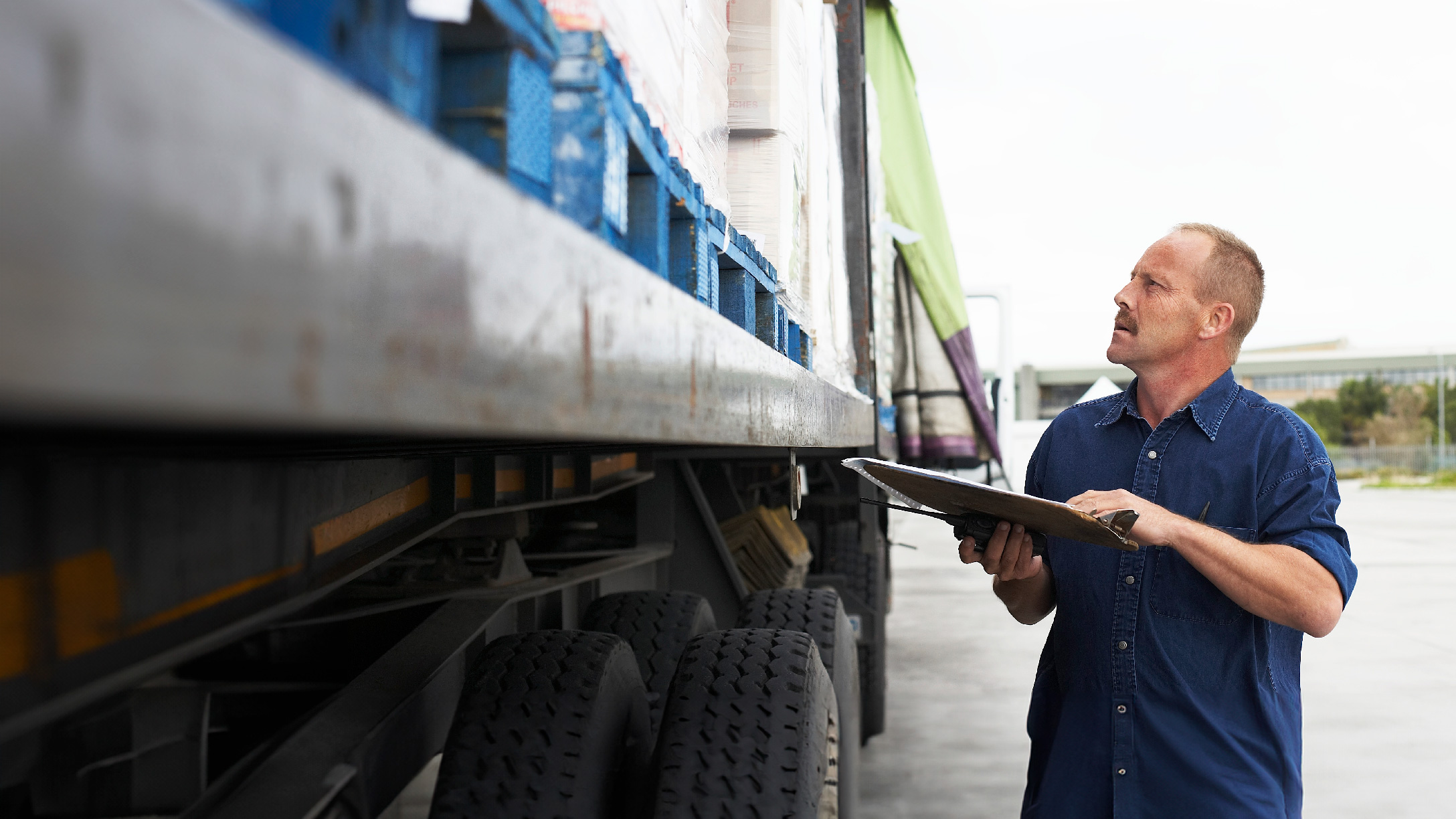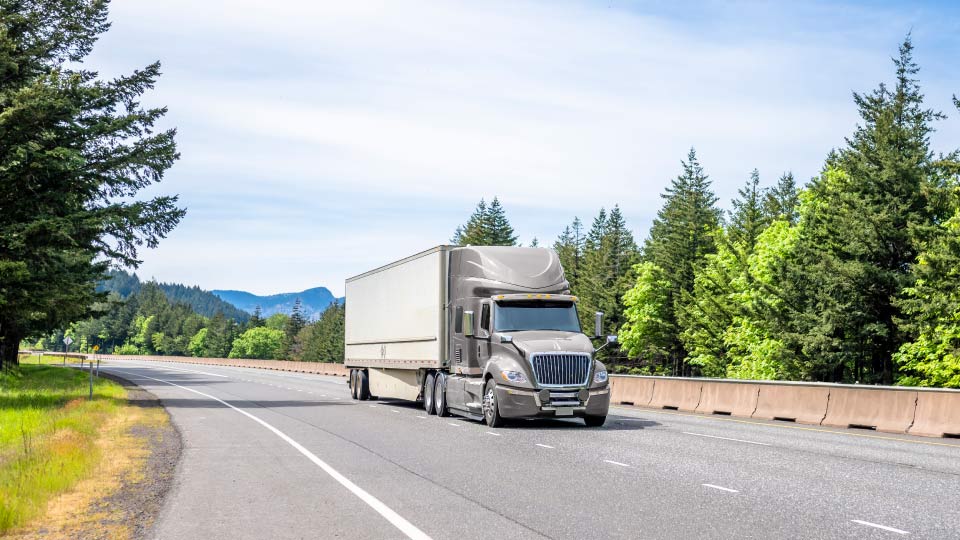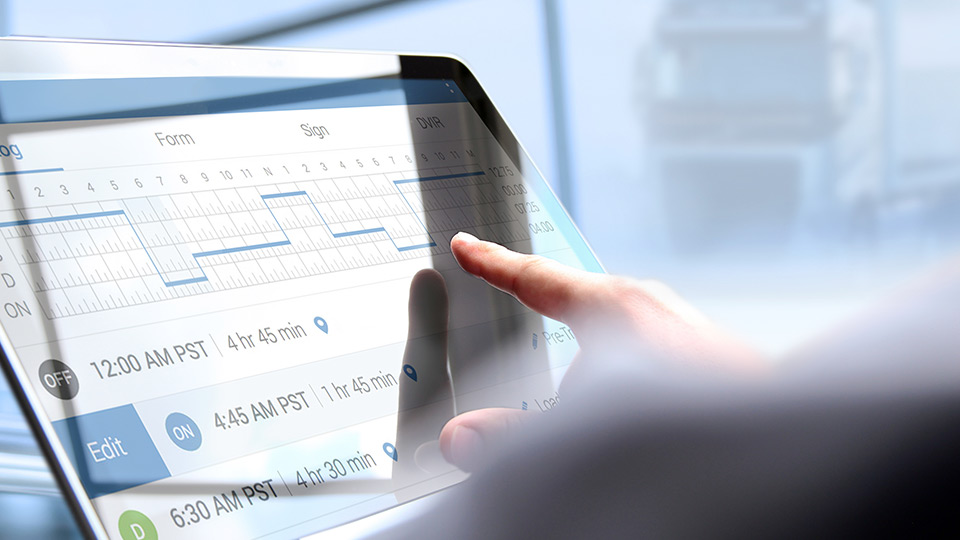Get your fleet ready for CVSA International Roadcheck 2024
Ahead of the CVSA International Roadcheck 2024 from May 14-16, learn how you can use telematics to make road checks a breeze.


The Commercial Vehicle Safety Alliance’s (CVSA) International Roadcheck has been scheduled for May 14-16, 2024. The CVSA developed the International Roadcheck to be a high-visibility, high-volume commercial motor vehicle inspection and regulatory compliance enforcement initiative. Certified inspectors from the CVSA use this time to conduct compliance, enforcement and educational initiatives targeted at various elements of motor carrier, vehicle and driver safety.
What is the CVSA International Roadcheck?
Established in 1988, International Roadcheck is a motor vehicle inspection and enforcement initiative that takes place over three days by CVSA inspectors in Canada, Mexico and the United States. They conduct North American Standard Inspections of commercial motor vehicles and drivers at weigh and inspection stations, on roving patrols and at temporary inspection sites.
The North American Standard Level I Inspection is a thorough 37-step inspection procedure consisting of examining vehicle components along with driver documentation and any additional requirements. It is guided by a checklist that examines both the driver and the vehicle for anything that might be amiss. This type of audit usually takes upwards of 60 minutes to perform.
Drivers will need to present any documentation that the inspector asks for, including their commercial driver’s license, driver’s logs and any skill performance evaluation certificates they might have. The driver’s history of drug or alcohol consumption while operating a vehicle will also be taken into consideration, if applicable.
This year’s International Roadcheck has two main focuses among the other requirements – tractor protection systems and alcohol and controlled substance possession.
How can I prepare for the CVSA International Roadcheck?
During the CVSA International Roadcheck, it’s important to stress to your drivers that they be vigilant of their behavior on the road and off.
Here are some ways that your truck fleet can prepare for the CVSA International Roadcheck:
Prioritize driver coaching
Driver coaching enhances fleet safety, reduces the risk of accidents and ensures compliance with regulations, which makes it a great way to proactively prepare for a road check. Driver coaching helps make sure that your fleet is ready to prove regulatory compliance and safety prior to road checks and audits, preventing violations and any resulting fines. By effectively and proactively preparing drivers through coaching opportunities, fleets can minimize disruptions or downtime and maintain operational continuity during and after inspections.
Camera monitoring
Implementing a comprehensive camera system before road checks is able to offer fleets documented, historical compliance with safety regulations. Cab-facing cameras can also be an effective tool to reveal driver behavior for targeted coaching, leading to improved safety practices. Ultimately, implementing camera systems promotes a culture of accountability and continuous improvement within the fleet, making sure drivers meet regulatory standards effectively before they are assessed during road checks or audits.
Regular maintenance
A regular maintenance schedule is essential for fleets – it helps make sure vehicles are safe, reliable, and compliant with transportation regulations — all factors that are heavily scrutinized during a road check. Regular maintenance lowers the risks of mechanical failures and can prevent costly breakdowns. Keeping your vehicles in good mechanical standing lowers the risk that your vehicle undergoing a road check will be flagged for a vehicle-related issue.A well-maintained fleet signifies a commitment to safety standards, potentially upholding the fleet's professional reputation during inspections.
DVIR completion
Completing Driver Vehicle Inspection Reports (DVIRs) is essential for fleets to proactively identify and address safety issues before roadchecks or audits. These pre- and post-trip inspections ensure that any maintenance or safety concerns are documented and resolved promptly, which helps demonstrate due diligence and adherence to regulatory standards in the instance of a road check or audit. Consistent completion of DVIRs contributes to minimizing unexpected breakdowns, reducing downtime and maintaining a good safety record, which is critical during roadchecks or audits.
Adopt telematics for easier audits
Telematics can help streamline all areas of safety and compliance. By proactively managing fleet operations with telematics, fleets can minimize the risk of citations, demonstrate compliance and maintain high safety standards.
Make your safety and compliance easier with help from Geotab. Visit our website to learn more.
Subscribe to get industry tips and insights

Stephen is a Government Affairs Manager for Geotab.
Table of Contents
Subscribe to get industry tips and insights
Related posts

Clean Truck Check: How to comply with California's standards [2025]
January 26, 2025
4 minute read

FIPS 140-3 validation: What it is and what it means for Geotab customers
December 18, 2024
2 minute read



